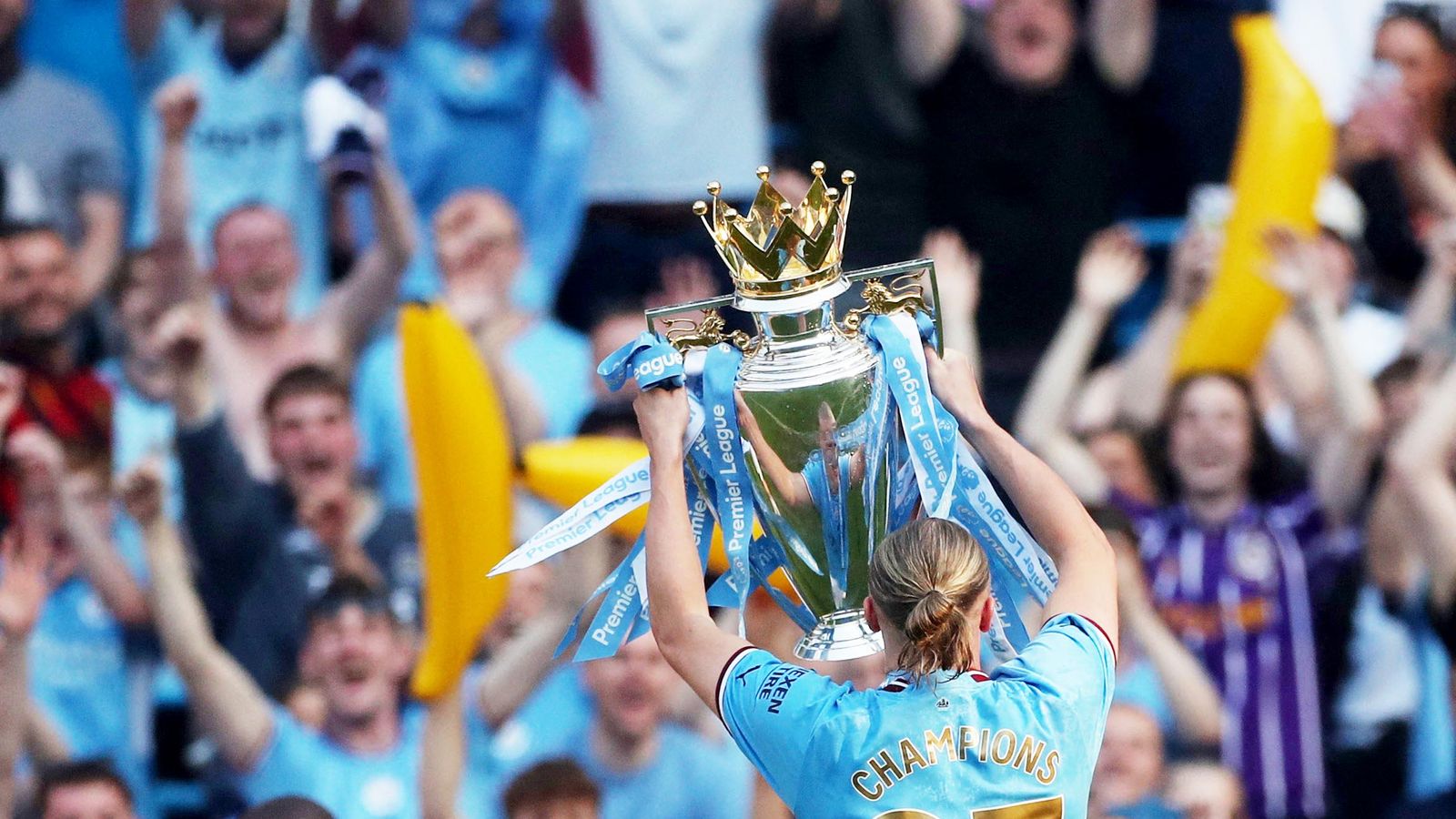The Premier League is facing a fresh battle over changes to rules governing commercial deals between related parties after it was warned by a club that the proposals were unlawful.
Sky News has learnt that the 20 top-flight clubs, which include Arsenal, Brentford, Chelsea and Manchester United, were notified on Thursday that one of them had informed the Premier League that it could resort to arbitration proceedings to prevent the changes being adopted.
The so-called associated-party transaction (APT) rules are intended to ensure a level playing field among English football’s elite teams by preventing clubs from signing commercial deals at inflated prices, thereby enabling them to spend even greater sums on players.
There was speculation on Friday that Manchester City, which is already facing 115 charges of breaching Financial Fair Play (FFP) rules, was the club which had objected to the reforms.
Money latest: Ring Doorbell doubles prices in less than two years
It is understood to have told the Premier League that the changes were unlawful in English competition law, paving the way for yet another legal battle involving the game at a time when it is under intense political pressure with an independent regulator looming.
Manchester City, which is owned by Abu Dhabi sovereign investors, have previously expressed its opposition to tighter APT rules.
Their stadium is named after Etihad, the Gulf state’s flagship airline, and is said to have been among those voting against restrictions on loan signings between clubs with common ownership during a ballot on the issue in November.
The current Premier League champions are part of City Football Group, a sprawling international network of clubs in cities including Melbourne, Mumbai, New York and Yokohama.
The club is contesting the 115 FFP charges, with Richard Masters, the Premier League chief executive, telling MPs last month that a date had been set for a hearing on the allegations.
The charges were brought a year ago – since then Everton have also been charged and had a 10-point deduction imposed which leaves the Goodison Park club perilously placed in the relegation zone.
Everton have also been charged with a second batch of breaches, along with Nottingham Forest.
The issue of related-party deals has become increasingly important to many clubs because they believe the competitive balance of the Premier League is being distorted by state ownership at rivals including Manchester City and Newcastle United.
Newcastle are majority-owned by Saudi Arabia’s Public Investment Fund and have their shirts sponsored by Sela, a Saudi sports rights enterprise.
Questions have also been raised about the value of Chelsea’s one-year shirt sponsorship deal with Infinite Athlete, given the club failed to qualify for Europe this season.
The latest threat to seek arbitration proceedings underlines the increasingly fractured relationship between the Premier League and a number of its clubs, and between the clubs themselves.
The top flight is already under pressure to finalise an elusive financial redistribution deal with the English Football League after many months of talks.
Read more from Sky News:
Top women’s clubs approve £20m Premier League loan
Heaters sold on TikTok and Temu ‘could explode’
Tesco Bank sold to Barclays in deal worth up to £1bn
On Thursday night, Culture Secretary Lucy Frazer attended a dinner with Premier League club executives, which came midway through a two-day summit to discuss financial reforms.
A series of new financial sustainability tests, including relating to clubs being able to demonstrate a minimum of £25m of free cashflow, are being discussed at the meeting.
One source said: “The whole point of the APT rules is to prevent clubs inflating revenues above fair market value by orchestrating transactions with parties with common ownership.
“Any attempt to block those is self-absorbed and will ultimately damage the game.”
The Premier League is said to be confident that the legal advice it has received, which is that the APT reforms are permissible under competition law, is robust.
A Manchester City spokesman declined to comment on whether it was the club which had threatened legal action over the APT rules, but disputed the assertion that it was state-owned.
The Premier League declined to comment.

